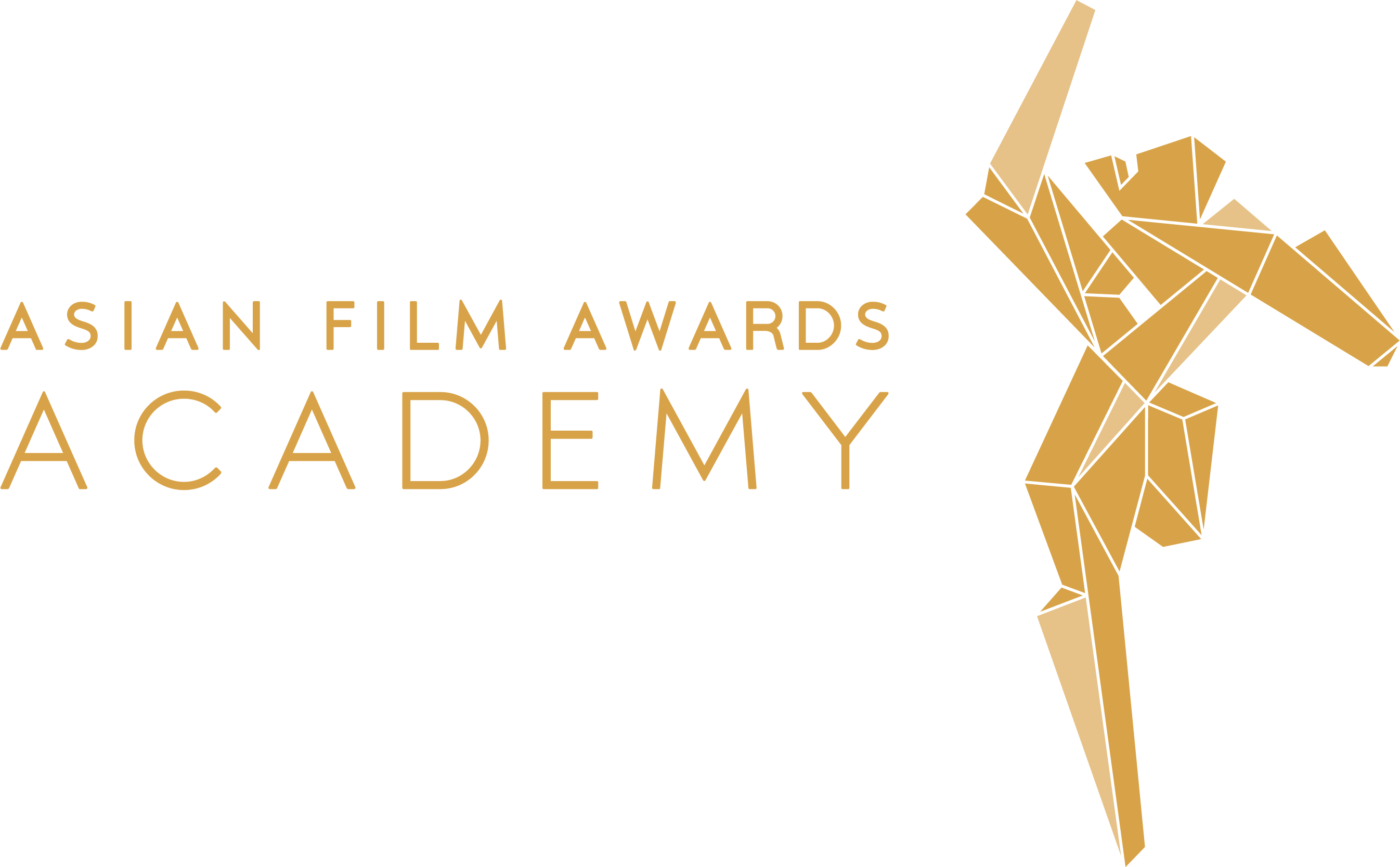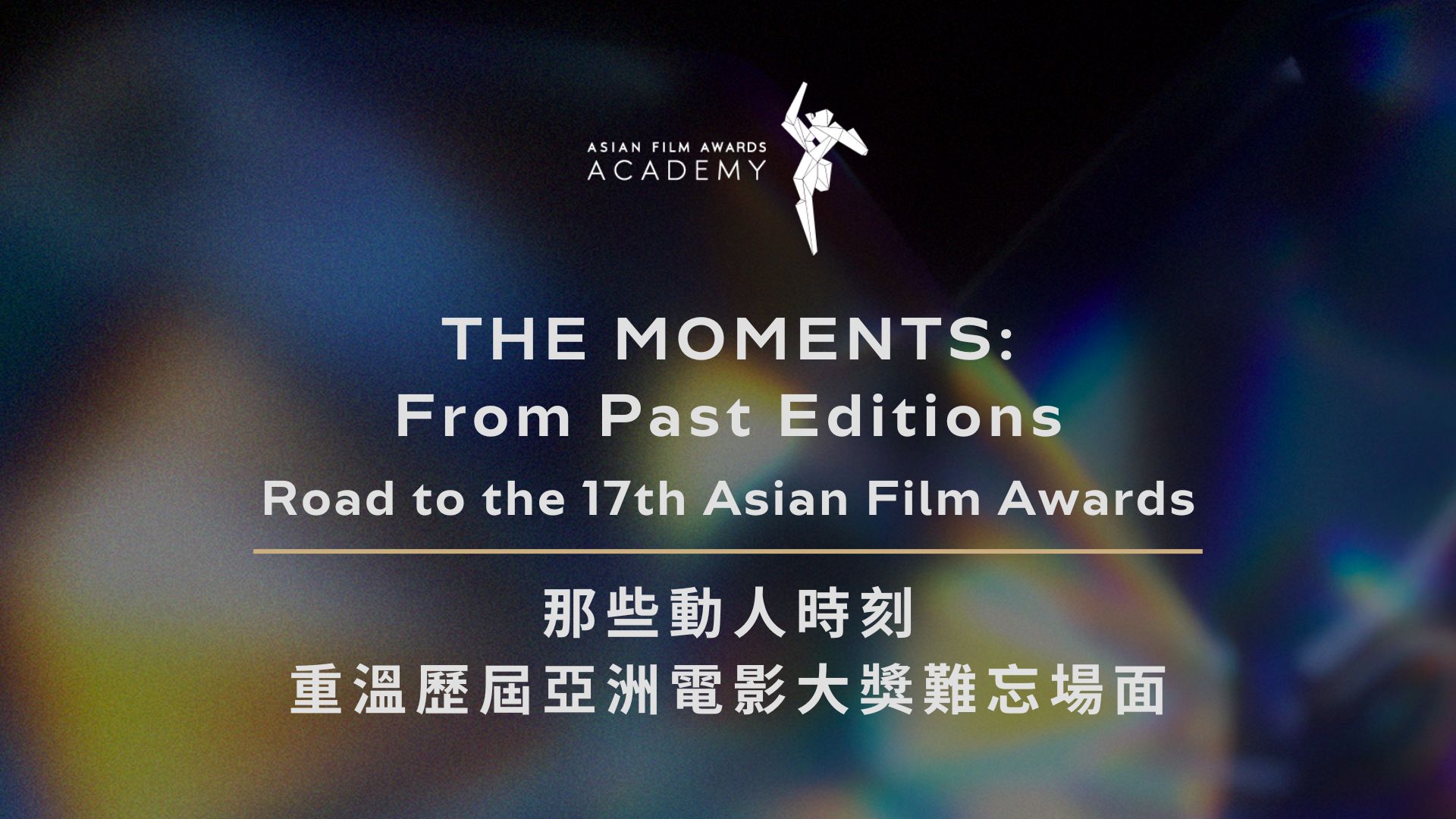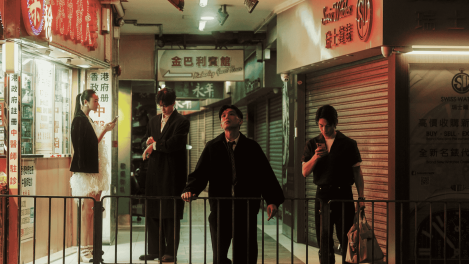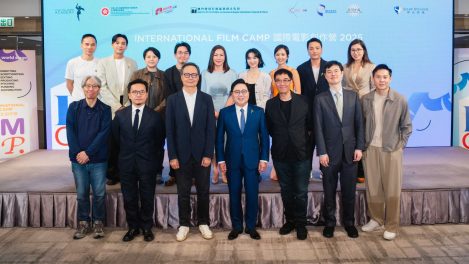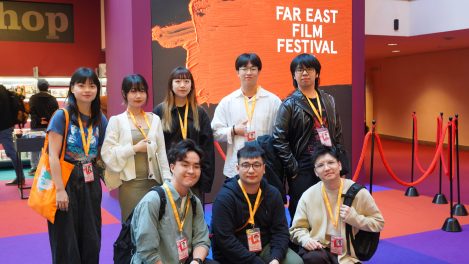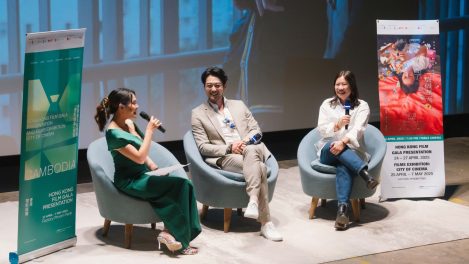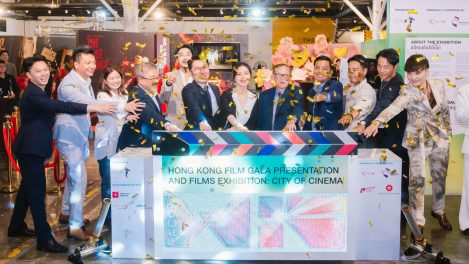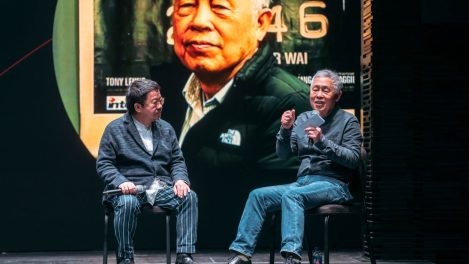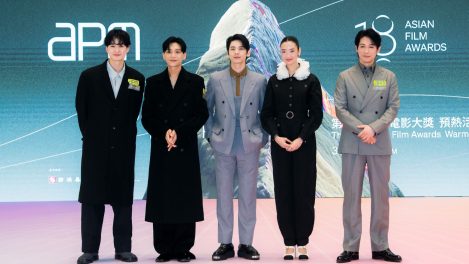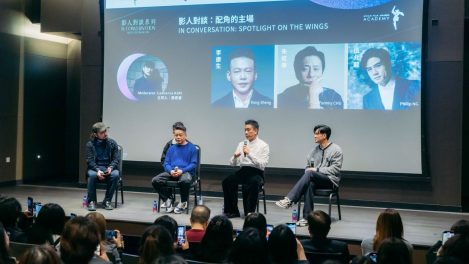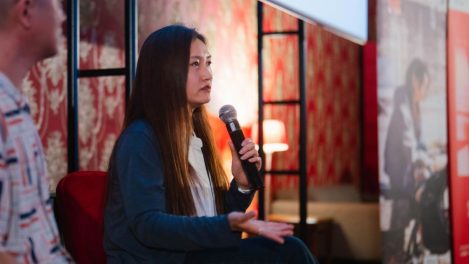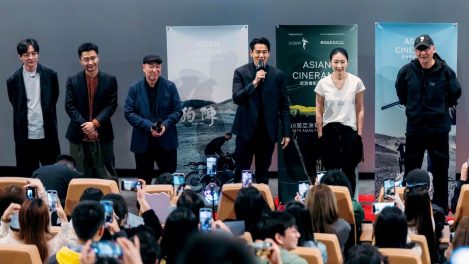THE MOMENTS From Past Editions
As we are looking forward to the 17th edition of the Asian Film Awards, let’s look back at some of the most memorable and moving moments from each of the past 16 editions.Since 2007, the Asian Film Awards has been bringing together the talents and professionals in the film industry from across the region under one roof, to celebrate the excellence in Asian cinema. Every year, the ceremony comes with unforgettable moments of joy and elation, as awardees bask in the love they have received from their fellow filmmakers and guests in attendance.
As we are looking forward to the 17th edition of the Asian Film Awards, let’s look back at some of the most memorable and moving moments from each of the past 16 editions.
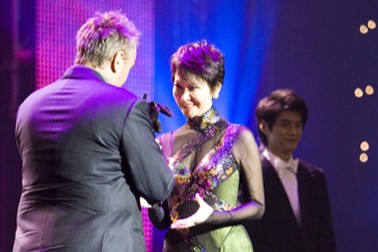
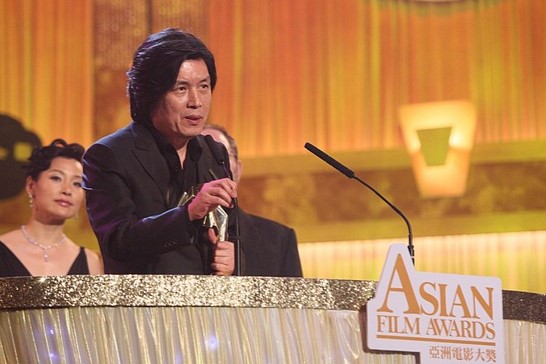
1st Asian Film Awards
AFA’s very first Outstanding Contribution to Asian Cinema Award was presented to none other than Hong Kong screen legend Josephine SIAO. Appearing in over 100 films, the iconic actress started her career as a child star and grew up to become one of Hong Kong cinema’s most celebrated stars.
Receiving the award on the day after her 60th birthday, a teary-eyed SIAO called the award a priceless gift.
2nd Asian Film Awards
Despite having only six films under his belt, South Korean director LEE Chang-dong has been one of the most a filmmakers throughout AFA’s history. It began in 2008, when his masterpiece Secret Sunshine won three of the top awards – Best Actress (JEON Do-yeon), Best Director and Best Film.
In what would become his first of many times on the AFA stage, Director LEE said during his acceptance speech, “As a Korean filmmaker, to receive an award for Best Asian Film in Hong Kong is the greatest reward of all. I will work even harder from now on.”
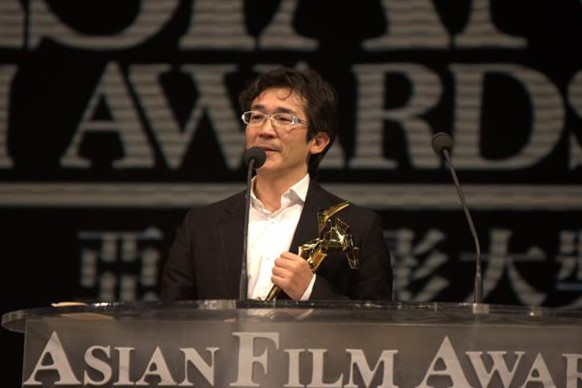
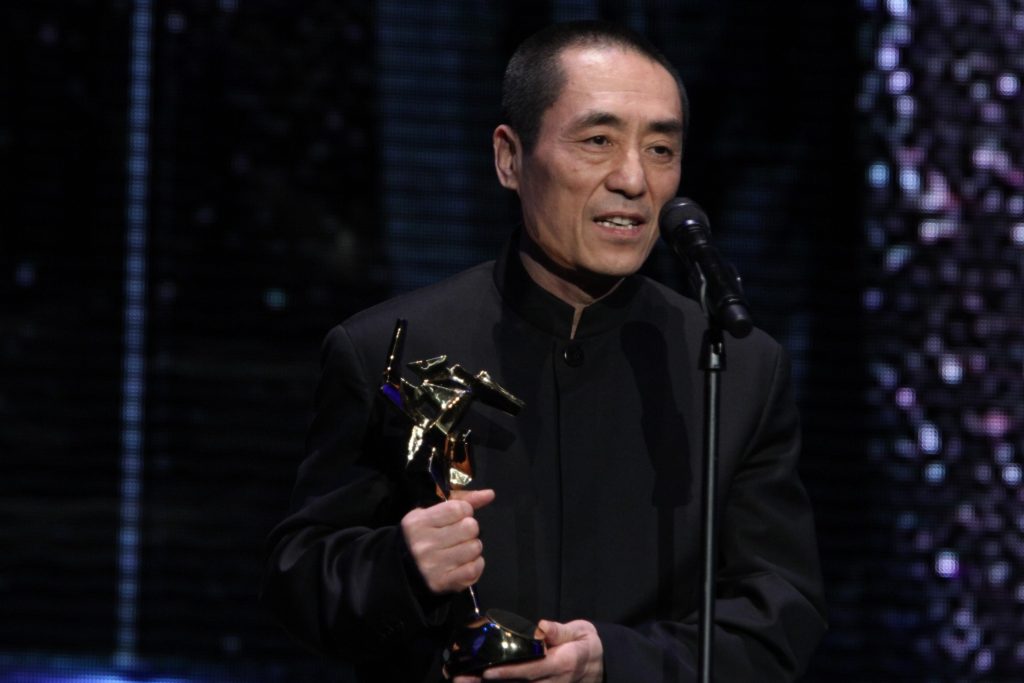
3rd Asian Film Awards
In 2009, director WEI Te-ShIng received the Edward Yang New Talent Award for his feature directorial debut Cape No. 7, which smashed box office records in Taiwan. Serendipitously, the New Talent Award was named after his mentor, the late Edward YANG.
In tears, Wei said, “This is the first time I’m crying while receiving an award, because it makes me feel like I’m getting an affirmation from my mentor. This award means more to me than anything in the world.”
4th Asian Film Awards
Before taking the important role of Jury President for the 16th AFA, director ZHANG Yimou’s integral contribution to Asian cinema was recongised by the AFA with the Outstanding Contribution to Asian Cinema Award.
Reaffirming his continuing dedication to cinema, Zhang said, “I see this award as a new starting point for myself to make more great films for everyone.” He lived up to his promise, nominated twice at Asian Film Awards for Best Director and won once for One Second in subsequent years.
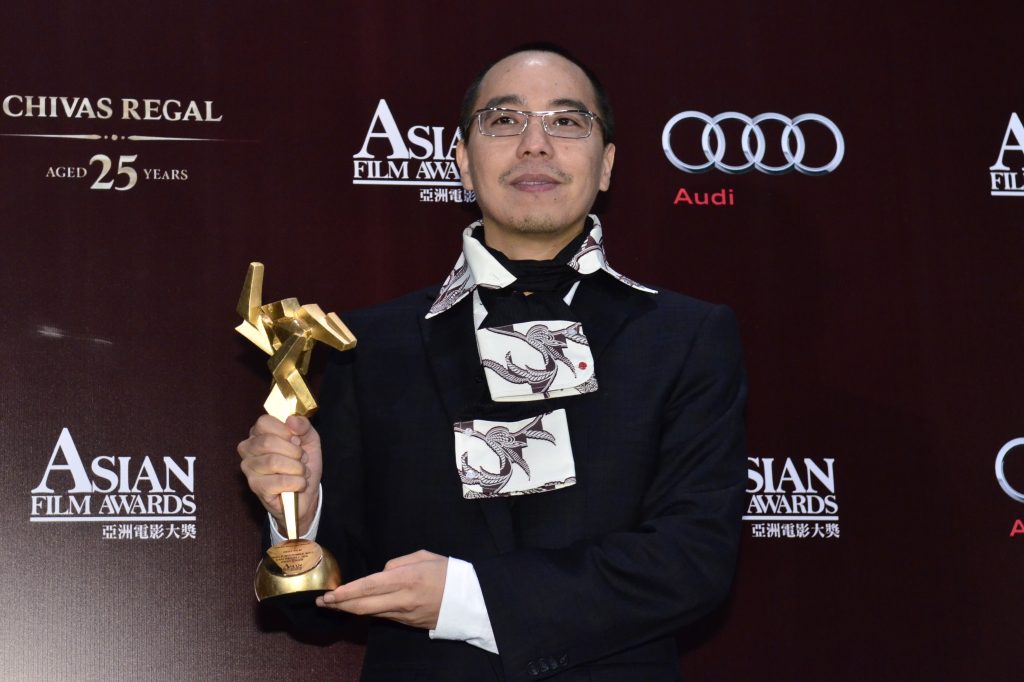
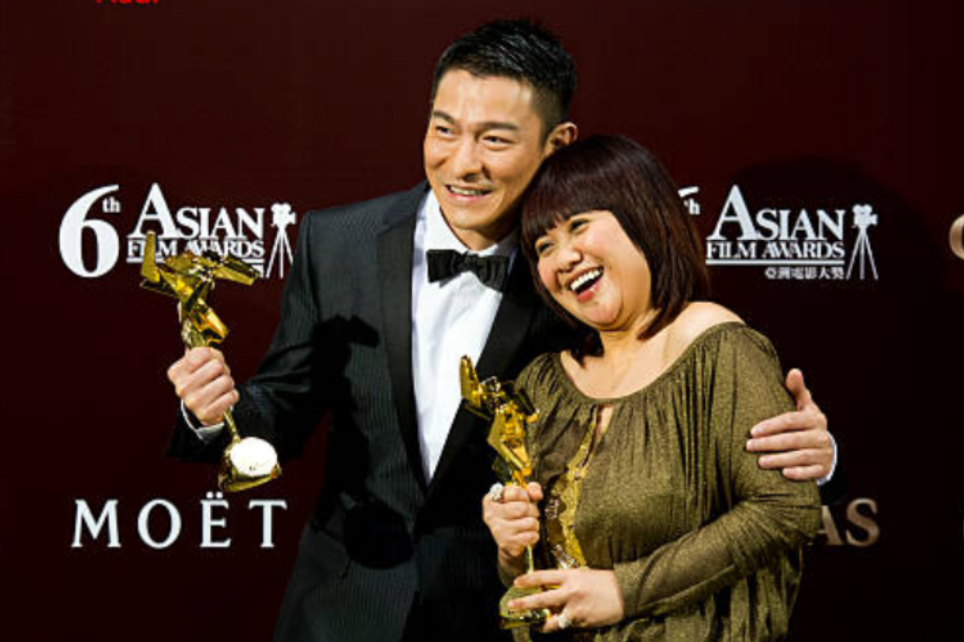
5th Asian Film Awards
After becoming the first Thai film to win the prestigious Palme d’Or in Cannes, Apichatpong WEERASETHAKUL’s Uncle Boonmee Who Can Recall His Past Lives became the first Southeast Asian film to nab the top prize at the Asian Film Awards in 2011.
During his acceptance speech, director WEERASETHAKUL said, “Thanks for who recognised this small, very small film. For me, film technology and the way we make film has been transforming along with the digital technology coming. So, we’re always adapting. But the core of the whole thing is simply a story, an emotion. Machine cannot do that yet.”
6th Asian Film Awards
The Philippines’ Eugene DOMINGO lights up every room she’s in with her humorous and cheerful persona. When she was called up to receive her People’s Choice for Favourite Actress prize, Domingo was so starstruck by the presence of fellow People’s Choice Award winner Andy LAU onstage that the first thing she did was snap a selfie with the Hong Kong superstar.
“You can wait, okay? I waited 25 years for this,” DOMINGO said as she excitedly pulled out her phone and asked LAU for a kiss. Despite her giddiness from her star encounter, DOMINGO still remembered to recognise her fellow Filipino artists in the audience and dedicated the award to her country.
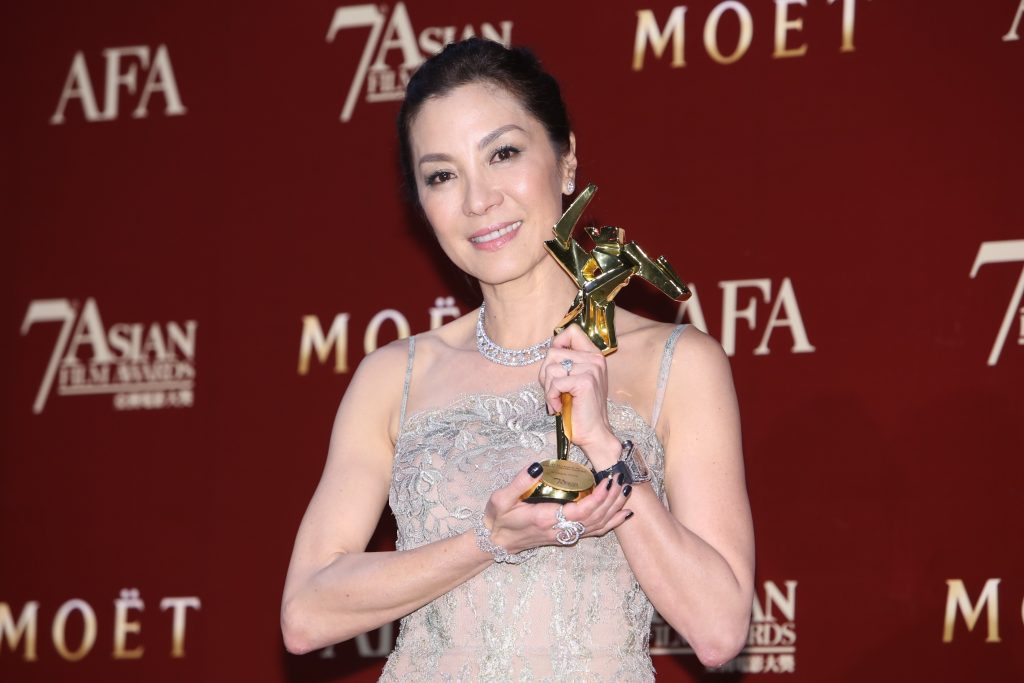
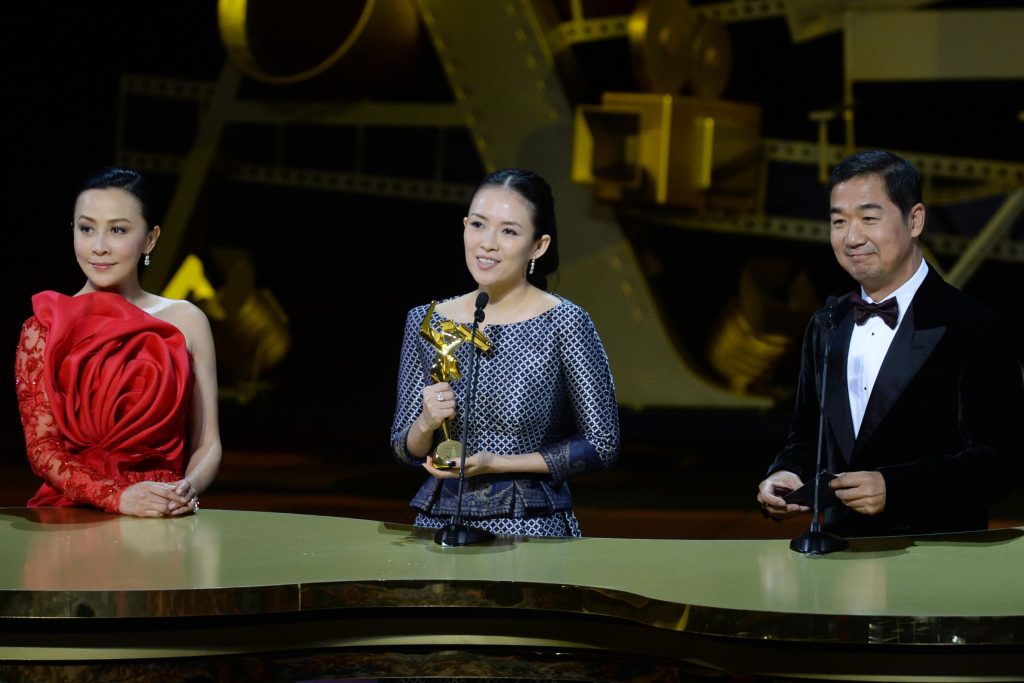
7th Asian Film Awards
A decade before she made history with her Academy Award for Best Actress, Michelle YEOH was the first recipient of the AFA’s Excellence in Asian Cinema Award. In her moving speech, YEOH praised not only her previous collaborators in Hong Kong, but also her fellow Asian filmmakers:
“You know, there is no-one in Hollywood who watches our films and doesn’t learn from them or isn’t inspired by them. We are not just Asian filmmakers, we are world-class filmmakers…And our stories are universal stories, and I have the faith that with your talent and your skills, you will continue to dazzle the world,” YEOH said.
8th Asian Film Awards
One of ZHANG Ziyi’s most memorable performances of her illustrious career was in WONG Kar-wai’s The Grandmaster. For her captivating performance as a martial arts master, ZHANG became the first actress to win Best Actress at all three major Pan-Asian film awards – The Asia Pacific Screen Awards, the Asia-Pacific Film Festival and the Asian Film Awards.
Picking up her 8th Best Actress prize for the film, ZHANG thanked her fellow actors: “When we take on a character, we wholeheartedly devote ourselves to feel, to experience and to convey the full range of their emotions. They are alive, and they do not wear masks. They may only exist on a screen, but they are also alive with flesh and blood.”
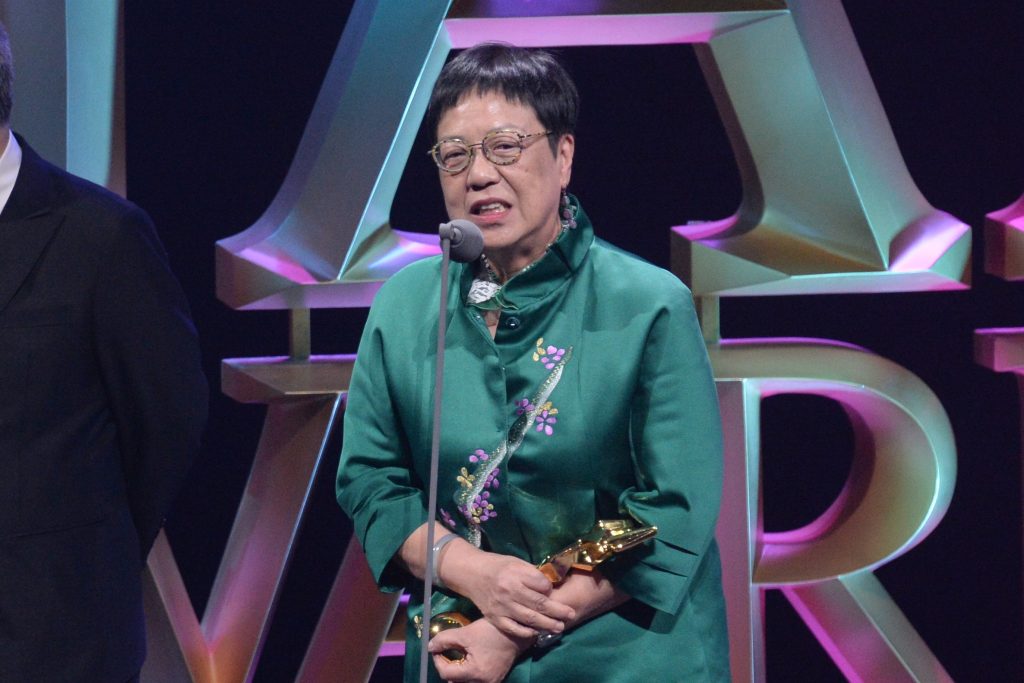
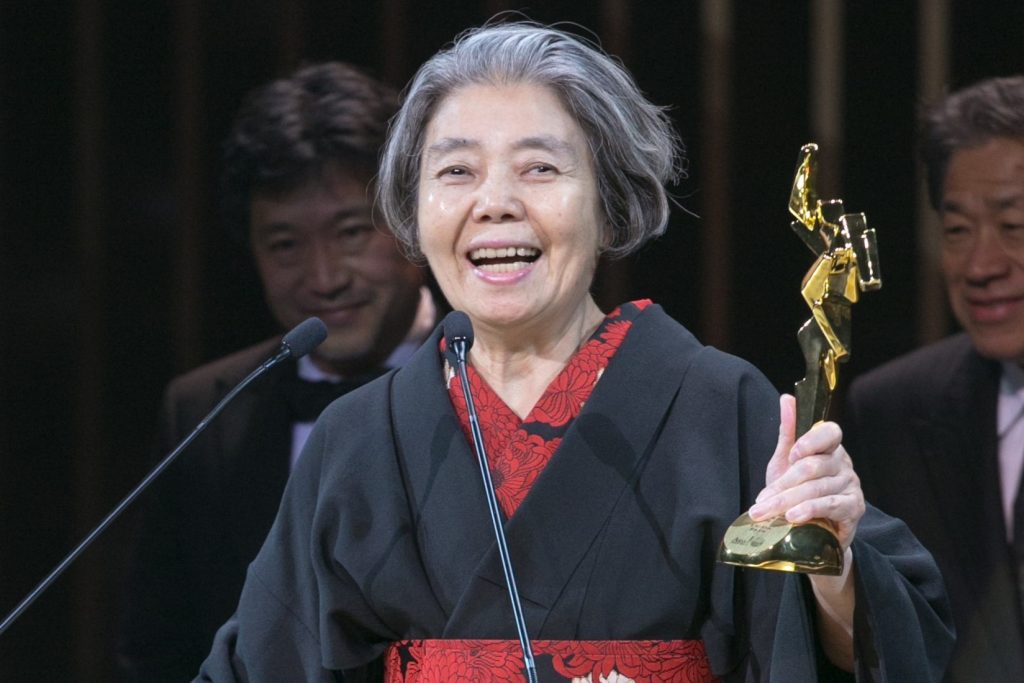
9th Asian Film Awards
After receiving the Lifetime Achievement Award in the 6th edition, Hong Kong’s Ann HUI won her first AFA Best Director in 2015 for epic biopic The Golden Era, becoming the first female recipient of this award.
During her acceptance speech, HUI said, “The reception of the film is really a rollercoaster. Now we have some endorsements, especially with this award, I can go on and try to make more films.”
10th Asian Film Awards
In a near-sweep, HOU Hsiao-Hsien’s period epic The Assassin won eight awards out of its nine nominations, setting a record for most awards won by a single film. That record has not been broken to this day.
Accepting her Best Actress award for the film, star SHU Qi made a humourous reference to the demanding action choreography for her physically demanding role: “I want to thank the Asian Film Awards, the cast and crew of The Assassin, as well as my companion for the past two years: my medical bandages.”
10th Asian Film Awards
The 10th AFA saw not one, but two Lifetime Achievement Award recipients take the stage to be celebrated by their peers. Director KORE-EDA Hirokazu, a close friend of AFA, took the stage to present the Lifetime Achievement Award to actress KIKI Kirin, one of his closest collaborators.
In her moving and humourous speech, Kiki said, “I saw so many people running around, putting their heart into making tonight’s award ceremony a success. I dedicate this honor to those people. However, there is only one trophy, so I will take it home.”
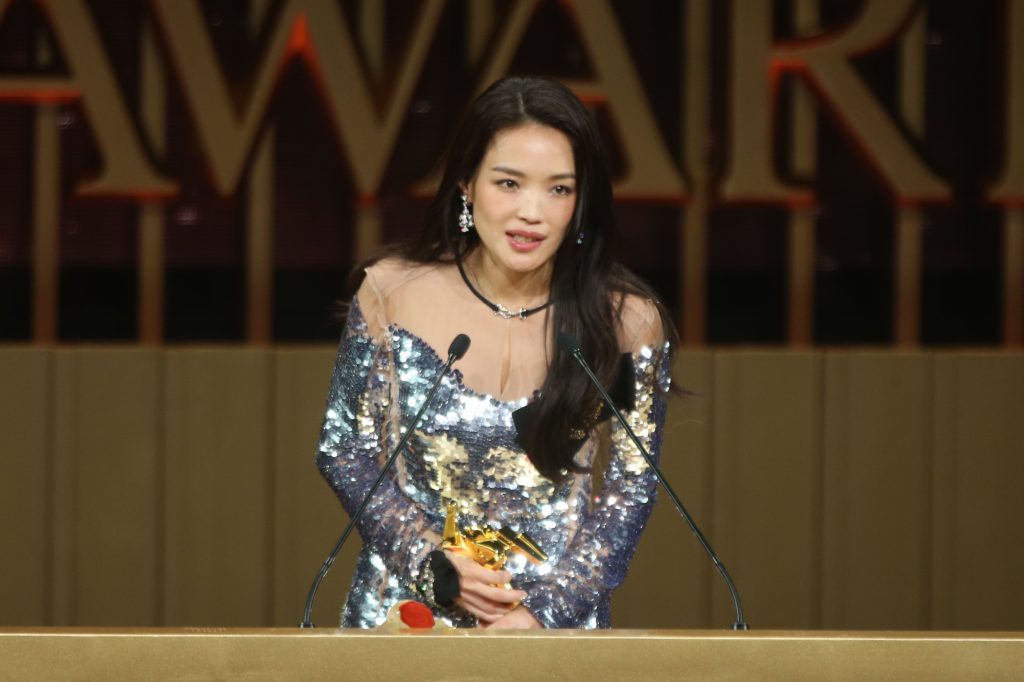
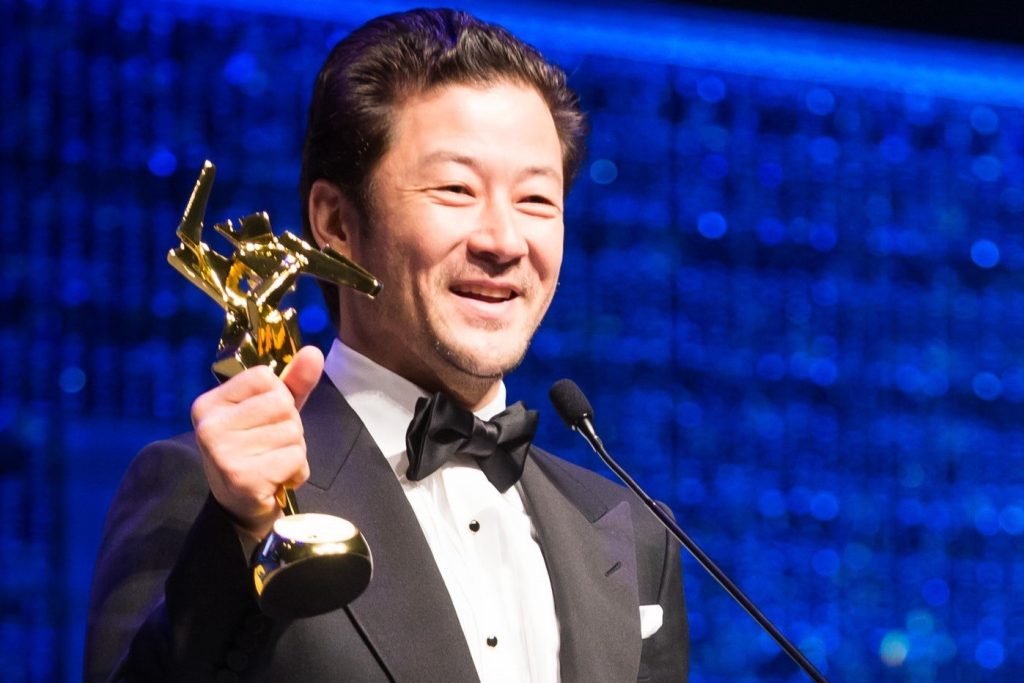
11th Asian Film Awards
After winning Best Supporting Actor the previous year for Journey to the Shore, Japan’s ASANO Tadanobu returned to the stage again at the 11th AFA as the winner of Best Actor for his performance in FUKADA Koji’s Harmonium.
During his acceptance speech, Asano said, “It’s an honour to be back here. I won the Best Supporting Actor award last year, so winning this year is special. I am truly happy. I want to express my heartfelt gratitude to director FUKADA Koji. He helped me a lot by holding lots of discussions and rehearsals with me. That’s how I was able to develop my role.”
12th Asian Film Awards
For 25 years, Louis KOO has been one of the Hong Kong’s most prolific actors, leading some of its highest-grossing films. In 2017, KOO won his first film acting prize, winning Best Actor at the 12th AFA for action-drama Paradox.
Visibly moved by the honour, KOO said during his acceptance speech, “I have been in the business for over two decades. I have made over one hundred films. This is the first award I’ve received for a film.”
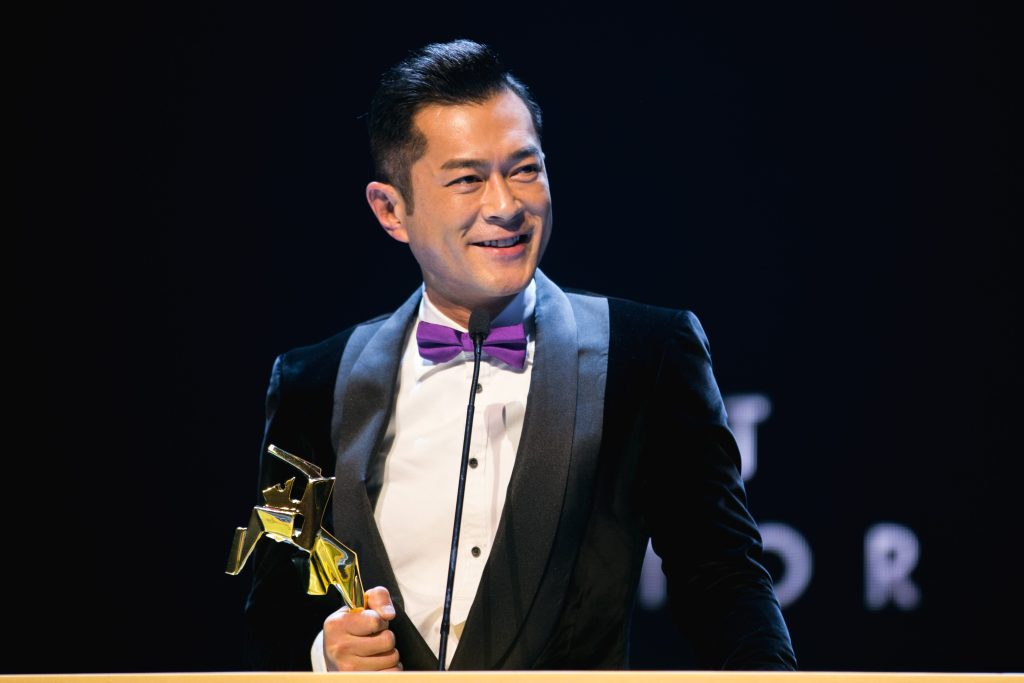
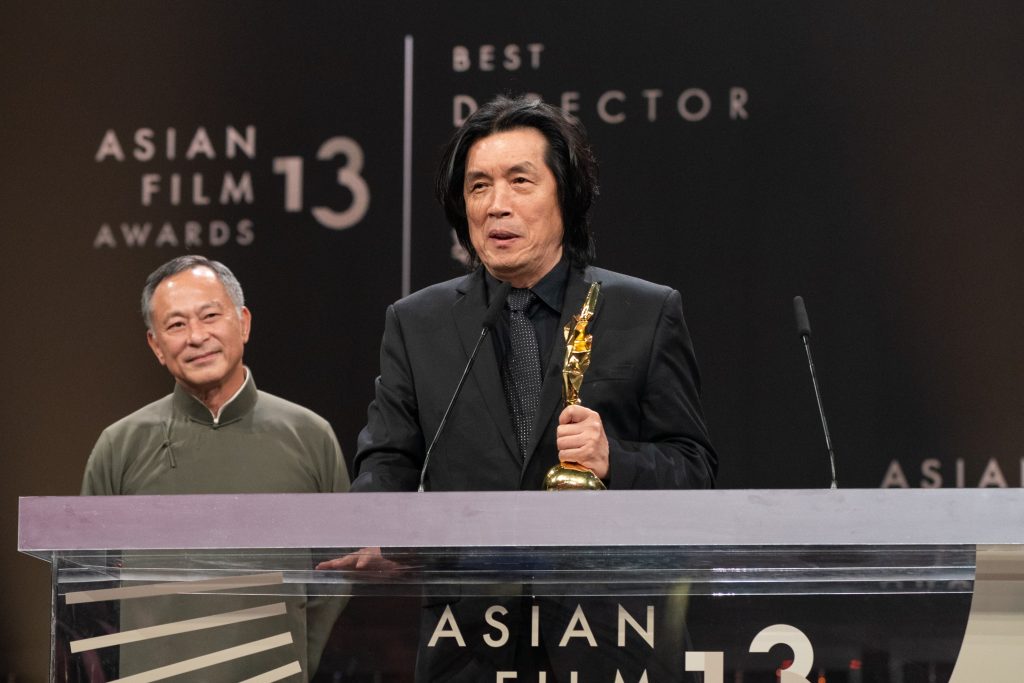
13th Asian Film Awards
The 13th AFA was particularly special because two of the major awards went to the two special achievement award winners. YAKUSHO Koji, one of the most decorated actors in Asian cinema, received the Excellent in Asian Cinema Award, then won the Best Actor award for gangster drama The Blood of Wolves. Meanwhile, director LEE Chang-dong won the Lifetime Achievement Award before receiving the Best Director award for Burning. “Do I deserve the award? Hmm…maybe. I am going to work hard to be an actor who deserves this award,” said the humble YAKUSHO.
“I think I don’t deserve this prize – Lifetime Achievement. I really don’t (think) I achieved much so far. I am still too young, and I still have a long way to go. So, I think this prize is not for my past, but for my future,” said LEE.
14th Asian Film Awards
Faced with an unprecedented global COVID-19 pandemic, the AFA had to adapt for its 14th edition, foregoing a physical award ceremony and announcing its winners online. Nevertheless, filmmakers and actors around the world joined in via the internet to celebrate the cinematic achievements of their fellow Asian filmmakers.
In addition to expressing their love for cinema, the presenters and winners all offered messages of encouragement and resilience at a time when all of humanity faced one of the most difficult challenges of its history.
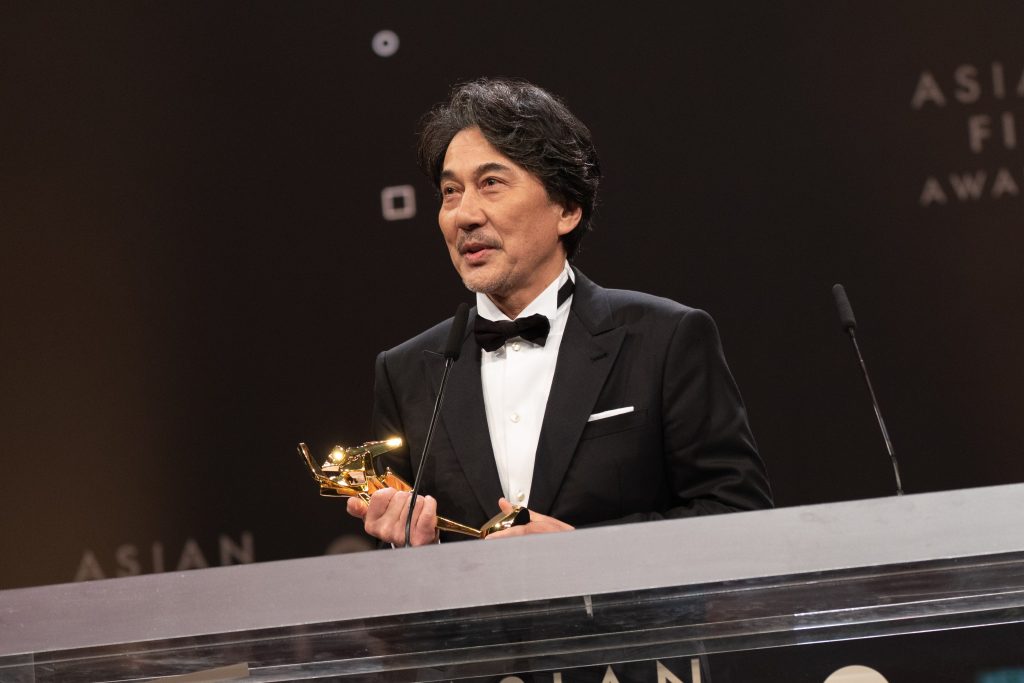
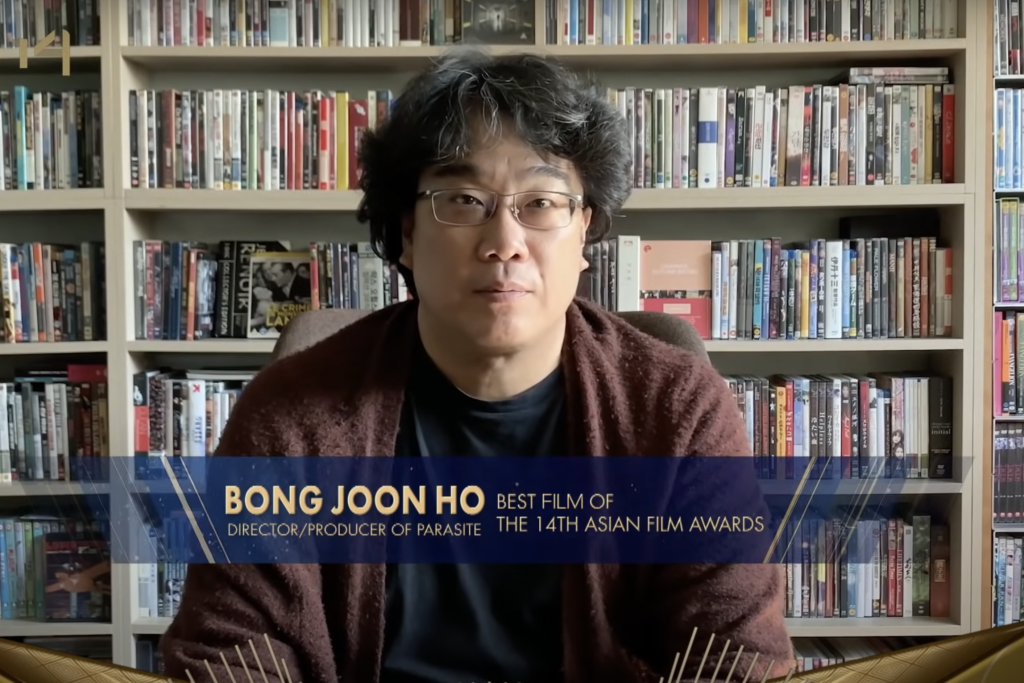
15th Asian Film Awards
The 15th AFA ceremony was held in South Korea’s Busan for the first time. Due to travel restrictions posed by the continuing COVID-19 pandemic, a physical ceremony was joined by guests who attended both in person and online. Even when we remained physically apart, Excellence in Asian Cinema Award recipient LEE Byung-hun offered a message of unity in his speech:
“The TV dramas and films made in Asia connect the world. Even if we are speaking different languages, the dramas and films that we made cross the barrier.”
16th Asian Film Awards
Celebrating his 60-year career in action cinema, the iconic Sammo HUNG took the stage to accept his much-deserved Lifetime Achievement Award. During his moving speech, HUNG spoke frankly about the effect of the global pandemic on his career and how this award made him felt like he was still part of the film industry.
“For a while, I wondered if I no longer had anything to do with the film industry. Then, the Asian Film Awards informed me that they wanted to present me with a Lifetime Achievement Award. I was so surprised and of course, ecstatic. I asked my wife what I should wear, and she chose this outfit. I said, ‘This is too formal; let’s wait until I win a Best Actor award to wear it.’ Then, she reminded me that a Lifetime Achievement Award is even more important than a Best Actor award; it’s once in a lifetime!”
There are countless magical moments of previous years and it cannot be exhaustively listed. At the meantime, more magical moments of this year are coming up. The 17th Asian Film Awards will be held on March 10, 2024 (Sunday) at t Grand Theatre, Xiqu Centre, West Kowloon Cultural District, Hong Kong. Stay tuned!
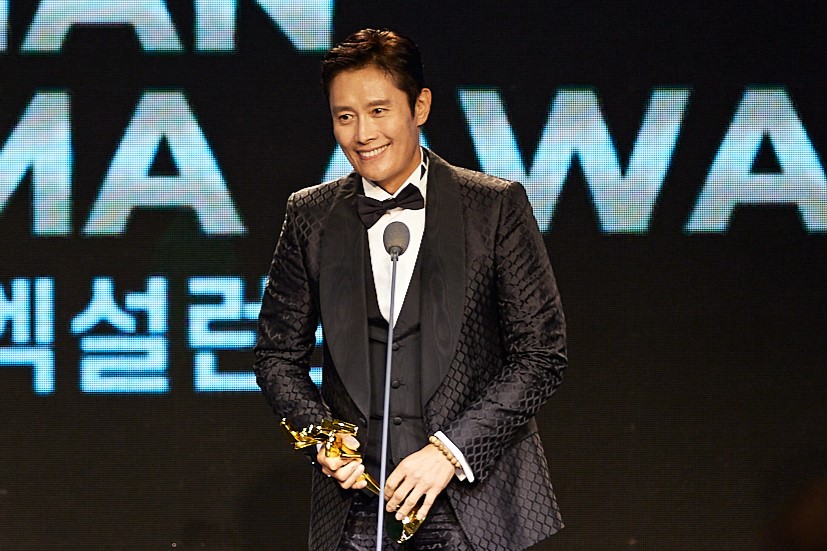
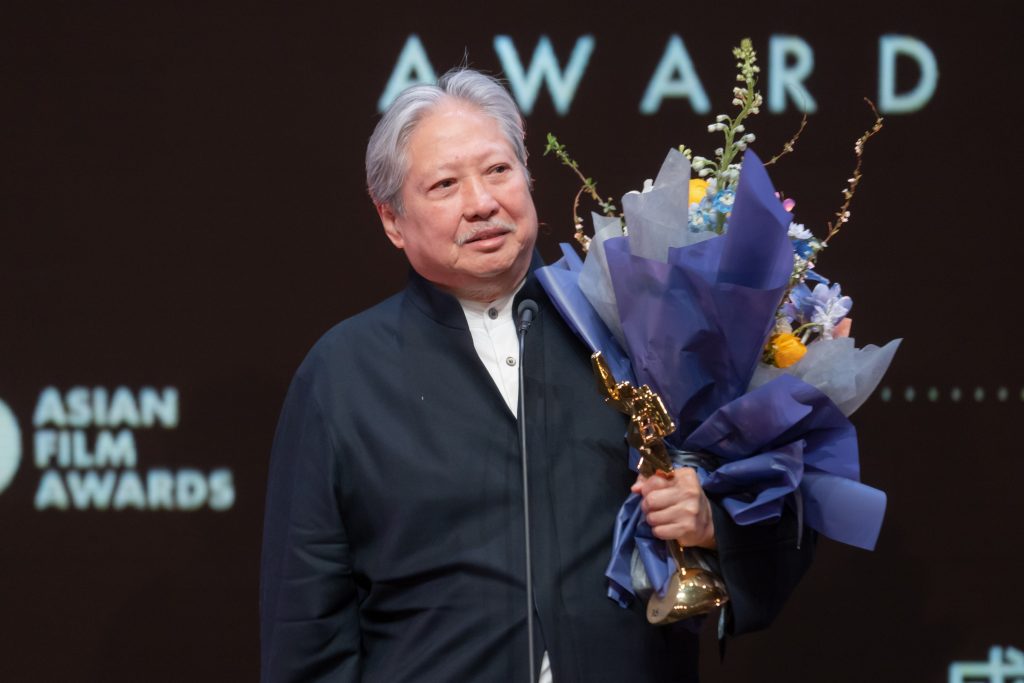
The 17th Asian Film Awards Ceremony
Date: 10 March 2024 (Sunday)
Location: Grand Theatre, Xiqu Centre, West Kowloon Cultural District
Address: 88 Austin Road West, Tsim Sha Tsui, Kowloon
Asian Film Awards Academy
The Asian Films Awards Academy, a non-profit organization, was founded by Busan, Hong Kong and Tokyo International Film Festivals with the shared goal of celebrating excellence in Asian cinema. Aiming to promote and recognize Asian films and its talents, AFAA highlights, strengthens and develops Asian film industry through the annual Asian Film Awards and several year-round initiatives.
The Asian Film Awards was inaugurated in 2007, where members of AFAA are drawn from its past nominees and winners. The category of awards includes Best Film, Best Director, Best Actor and Best Actress. Members vote for the Asian Film Awards and participate in various AFAA activities involving film professionals and audiences in Asia and around the world.
More details: www.afa-academy.com
Please contact us if any questions,
Email: info@afa-academy.com
Tel: +852 3195 0609
Website: www.afa-academy.com
